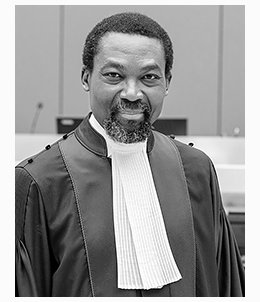 A conversation with Leila Sadat, a professor of law at Washington University School of Law in St. Louis, the United States, and Special Advisor on Crimes Against Humanity to the Chief Prosecutor of the International Criminal Court in The Hague. We discuss Leila’s decade long work as part of effort to establish an international convention for the prevention and punishment of crimes against humanity, and why such a convention is important, notwithstanding that crimes against humanity are addressed in the Rome Statute. This leads us into an examination of the role of the ICC in prosecuting crimes against humanity, the relationship between crimes against humanity and genocide, the ILC’s work on developing a draft convention, the current status of the effort to establish the convention, and the significance of the U.N. Sixth Committee to the process. A wide ranging and fascinating discussion!
A conversation with Leila Sadat, a professor of law at Washington University School of Law in St. Louis, the United States, and Special Advisor on Crimes Against Humanity to the Chief Prosecutor of the International Criminal Court in The Hague. We discuss Leila’s decade long work as part of effort to establish an international convention for the prevention and punishment of crimes against humanity, and why such a convention is important, notwithstanding that crimes against humanity are addressed in the Rome Statute. This leads us into an examination of the role of the ICC in prosecuting crimes against humanity, the relationship between crimes against humanity and genocide, the ILC’s work on developing a draft convention, the current status of the effort to establish the convention, and the significance of the U.N. Sixth Committee to the process. A wide ranging and fascinating discussion!
Materials:
– “Little Progress in the Sixth Committee on Crimes Against Humanity,” 54 Case Western Reserve Journal of International Law 89 (2022);
– “Towards a New Treaty on Crimes Against Humanity: Next Steps,” Just Security, Sept. 13, 2021;
– Forging a Convention on Crimes Against Humanity (Leila Sadat, ed., 2013);
– ILC Draft Articles on the Prevention and Punishment of Crimes Against Humanity (2019).
Reading Recommendations:
– Oona Hathaway and Scott Shapiro, The Internationalists: How a Radical Plan to Outlaw War Remade the World (2017);
– Philippe Sands, East West Street: On the Origins of “Genocide” and “Crimes Against Humanity” (2016);
– Carol Anderson, The Second: Race and Guns in a Fatally Unequal America (2021).
 In this episode, I speak with
In this episode, I speak with